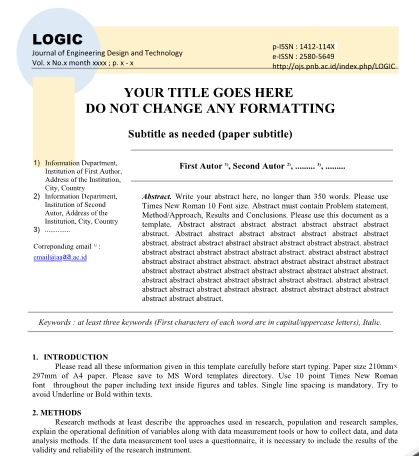Characterization of Municipal Solid Waste as An Energy Source in The Gasification Process
Keywords:
Municipal Solid Waste, Proximate Analysis, Ultimate Analysis, GasificationAbstract
Municipal solid waste (MSW) poses significant environmental challenges if not managed effectively. The composition and quantity of MSW are closely linked to the socioeconomic structure of a given area. This study aimed to assess the feasibility of utilizing raw materials from Denpasar's MSW for gasification processes. Samples were collected, segregated, processed, and dried for analysis. Various physical and chemical properties were examined, including moisture content, volatility, fixed carbon, elemental composition, and calorific value. Proximate analysis on dry base sample revealed that the MSW contained 12.45% moisture, 54.68% volatile matter, 13.05% fixed carbon, and 19.82% ash. Ultimate analysis showed the following elemental composition: 64.46% C, 11.5% H, 18.3% O, 0.5% N, and 0.05% S, with a calorific value of 11.99 MJ/kg. Based on these findings, the implementation of a waste-to-energy program utilizing gasification processes for waste management is recommended.








